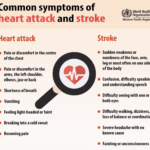Experts expressed several concerns about chat generative pre-trained transformers ChatGPT May Threaten Knowledge Base: Experts
Question from a Canadian University professor: How reliable is the information received through ChatGPT? What is its source?
Chat Generative Pre Trained Transformer (ChatGPT) is being discussed a lot in the internet world these days. Created by the OpenAI company, this chatbot gives almost exact answers to the questions you ask. Tesla and SpaceX owner Elon Musk also owns a stake in the OpenAT company.
However, academic experts. Academics have raised concerns about ChatGPT. According to Blaine Haggart, professor of political science at Brock University in Canada, the concern isn’t just how to catch crackpots using ChatGPT. The biggest concern is how to trust the information obtained through ChatGPT. Articles found on ChatGPT without mentioning the source can be used by the so-called academia, academic institutions, and media, the foundation of our society, which will be a threat to the entire information system.
For this reason, the world’s leading universities, and educational institutions have started to ban ChatGPT, in which the well-known French scientist Poe is the main one. Many universities in Australia have also taken this step. We devised scientific methods of measuring reliability.
ChatGPT May Threaten Knowledge Base: Experts
Table of Contents
Prof. According to Blaine, if something is said, the first thing we need to assess its credibility is what is its source. Only knowledge acquired scientifically is considered general knowledge. Science is not limited to the laboratory. The way we learn to think with our brains and experiences, evaluating and using evidence is also part of science. Over the centuries we have developed excellent criteria for judging knowledge in this way.
Each area has its own criteria Academic world: An article on a subject is written only by an expert in that subject. They understand the source of knowledge and have verified the information. Also gives examples. Only then do we believe their words.
Journalism
A journalist verifies information before presenting it. Cites sources in news, and also gives evidence. Sometimes even journalists make mistakes, but there is credibility in the field of journalism.
A battle between Truth and Output I Prof. Blaine added that ChatGPT imitates humans to produce sentences or paragraphs, which are just output, not scientific articles. This output cannot be trusted as much as articles by academic authors or information provided by journalists. The fundamental difference is how the article is prepared. ChatGPT is like a machine learning-based complex language model, which works like Google’s autocomplete feature. ChatGPT itself does not understand its own articles. It is only the output, not the truth.
What is ChatGPT?
ChatGPT is a language model developed by OpenAI, based on the transformer architecture. It is fine-tuned on a large corpus of conversational data and is capable of generating human-like responses to a wide range of topics and questions.
ChatGPT is part of OpenAI’s GPT (Generative Pre-trained Transformer) series, which also includes GPT-3. The model is trained using a deep learning technique called unsupervised learning, where the model learns patterns in the data without being explicitly told what the correct outputs should be.
One of the main advantages of ChatGPT is its ability to generate coherent and contextually appropriate responses, making it suitable for use in conversational AI applications such as chatbots, virtual assistants, and customer service systems. The model’s fine-tuning of conversational data also means it can handle the nuances and complexities of human language, such as sarcasm, humor, and idioms.
ChatGPT’s capabilities are not limited to text generation. It can also perform tasks such as summarization, translation, question answering, and more. The model’s vast knowledge base, which includes information from the internet and other sources, allows it to provide accurate and detailed answers to a wide range of questions.
In conclusion, ChatGPT is a powerful language model that has the potential to revolutionize the field of conversational AI. Its human-like responses and ability to perform a wide range of NLP tasks make it a valuable tool for businesses and developers looking to enhance their conversational systems.
Why ChatGPT May Threaten Knowledge Base
As with any technology, there are potential risks associated with the use of language models like ChatGPT. One concern raised by some experts is that these models could pose a threat to knowledge and understanding.
The vast amounts of information that ChatGPT and other language models have access to means. That they can generate responses to questions that appear to be accurate and authoritative. Even if the information is incorrect or outdated. This can lead to the spread of misinformation and harm the public understanding of certain topics.
Another concern is that the reliance on AI systems like ChatGPT could lead to a decline in critical thinking skills, as people become more reliant on these systems for information and answers. This could potentially undermine the ability of individuals to independently evaluate and assess information, leading to a decline in overall knowledge and understanding.
It’s important to note that these concerns are speculative and have yet to be fully realized. However, it’s important for individuals, organizations, and governments. To be aware of the potential risks associated with language models and to take steps to mitigate them. Such as through the development of fact-checking systems and education programs aimed at promoting critical thinking skills.
How ChatGPT Works
- ChatGPT is a language model developed by OpenAI, based on the transformer architecture.
- It is fine-tuned on a large corpus of conversational data and is capable of generating human-like responses.
- ChatGPT is part of OpenAI’s GPT series and is trained using unsupervised learning.
- It is suitable for use in conversational AI applications such as chatbots, virtual assistants, and customer service systems.
- ChatGPT can perform a wide range of NLP tasks, including text generation, summarization, translation, question answering, and more.
- It has a vast knowledge base that includes information from the internet and other sources.
- Some experts have raised concerns that language models like ChatGPT could pose a threat to knowledge and understanding by spreading misinformation and undermining critical thinking skills.
- It is important to be aware of the potential risks associated with language models and to take steps to mitigate them.




